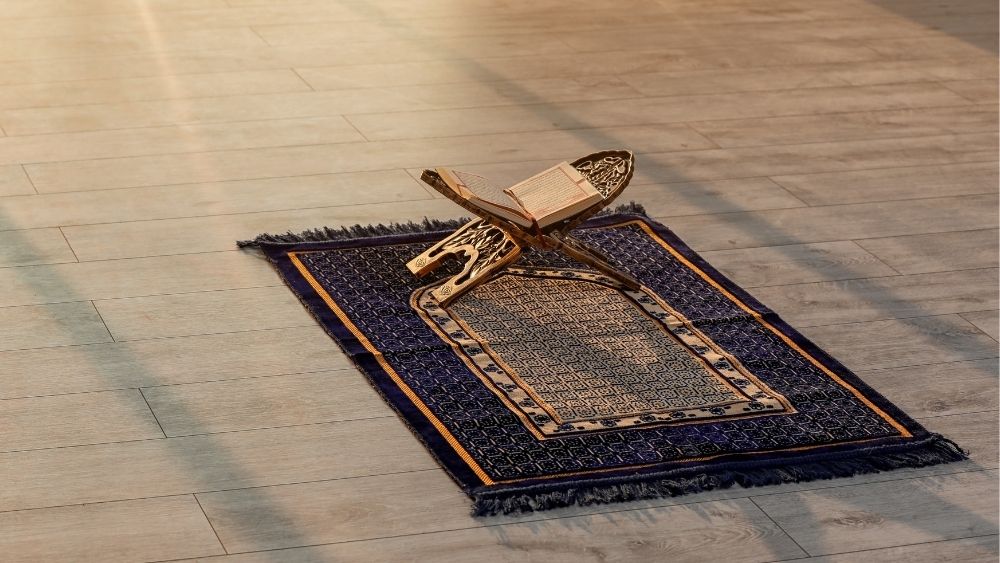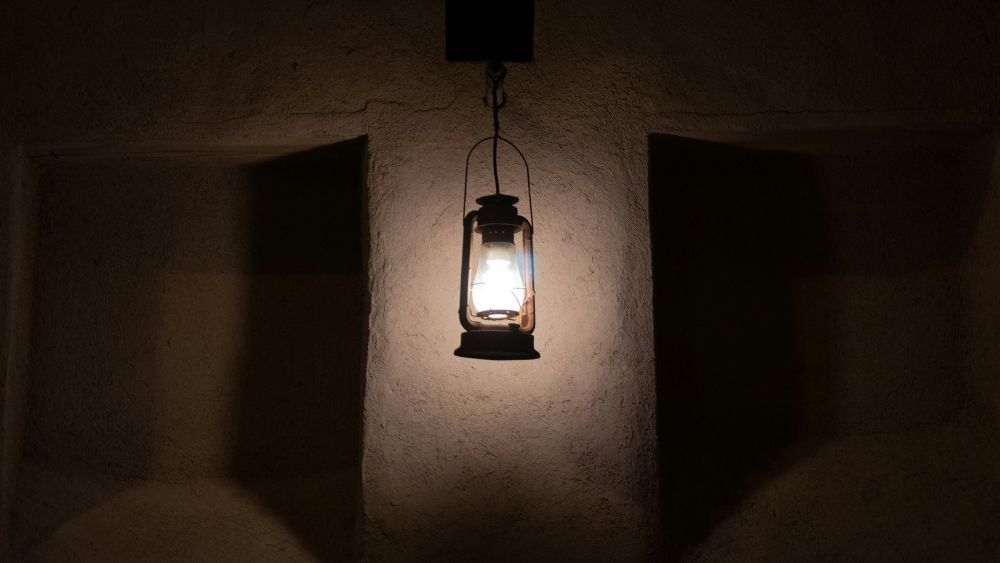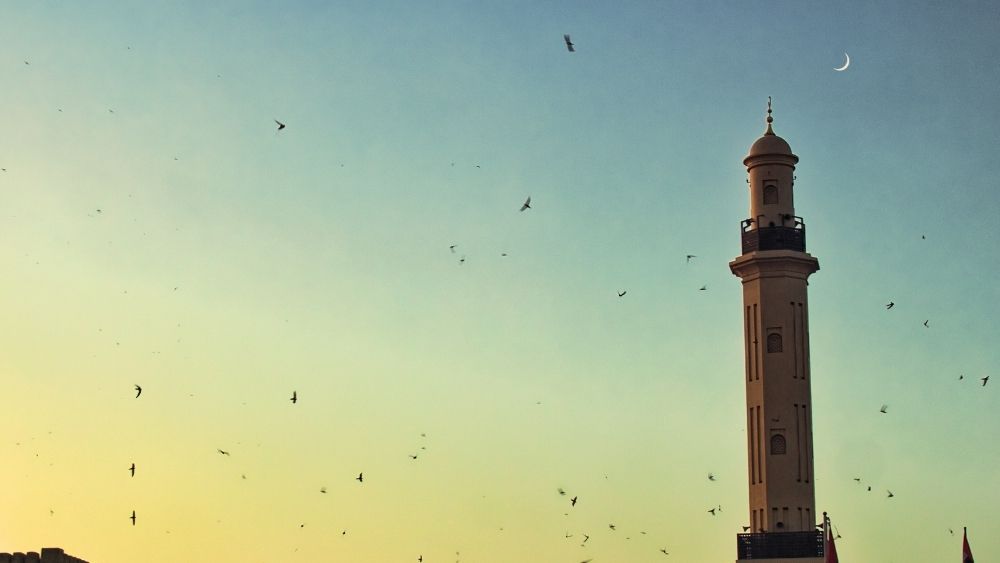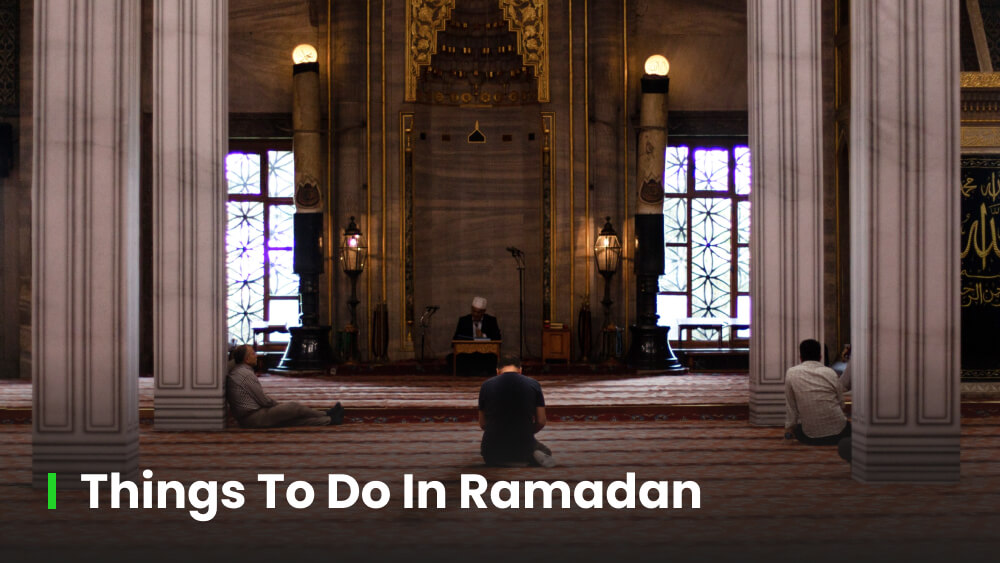Every moment of Ramadan is a gift, you don’t want to waste it, right? But with so many distractions, it’s easy to lose track of time if you don’t have a Ramadan to do list.
That’s why it’s important to know what to do and what to avoid during this month. From acts of worship to daily habits, small changes can greatly improve your Ramadan experience.
Explore the essential Ramadan activities that bring more barakah and help you make this month truly meaningful.
What to Do in Ramadan: List of Good Deeds
There are endless good deeds that you can do during Ramadan. We have shortlisted 10 best things you can do for a fulfilling Ramadan.
1. Fasting the Entire Month
Fasting every day of Ramadan is Fard (compulsory). So, the main duty of Ramadan is to fast from Subhe Sadik (pre-Sunrise) to sunset, every day of this glorious month. Allah says in the Quran:
شَهْرُ رَمَضَانَ ٱلَّذِىٓ أُنزِلَ فِيهِ ٱلْقُرْءَانُ هُدًۭى لِّلنَّاسِ وَبَيِّنَـٰتٍۢ مِّنَ ٱلْهُدَىٰ وَٱلْفُرْقَانِ ۚ فَمَن شَهِدَ مِنكُمُ ٱلشَّهْرَ فَلْيَصُمْهُ ۖ وَمَن كَانَ مَرِيضًا أَوْ عَلَىٰ سَفَرٍۢ فَعِدَّةٌۭ مِّنْ أَيَّامٍ أُخَرَ
Meaning: “Ramadan is the month in which the Quran was revealed as a guide for humanity with clear proofs of guidance and decisive authority. So whoever is present this month, let them fast. But whoever is ill or on a journey, then let them fast an equal number of days after Ramadan.” [Surah Al-Baqarah: 185]
Note: You can skip fasting if you are sick, menstruating or travelling. However, consult with your doctors and local scholars if your reasons are valid for skipping fasting.

2. Recite the Glorious Quran
Ramadan is the month when the glorious Quran was revealed. So, Ramadan without the Quran would be like a room without windows and lights, completely dark. Therefore, recite the noble Quran as much as possible this month.
If you plan to complete the entire Quran in Ramadan, please check this article for step-by-step guidelines to achieve this.
3. A Lot of Voluntary Prayers
Firstly, attend all Fard (compulsory) prayers in Jam’ah (congregation) during and outside of Ramadan. Ramadan might be your golden ticket to start if you have had struggles before.
Secondly, try to pray as much voluntary prayers as possible. The rewards of voluntary night prayers in Ramadan are incredible. Rasulullah ﷺ said:
مَنْ قَامَ رَمَضَانَ إِيمَانًا وَاحْتِسَابًا غُفِرَ لَهُ مَا تَقَدَّمَ مِنْ ذَنْبِهِ
Meaning: “Whoever stands (in the voluntary night prayer of) Ramadan out of faith and in the hope of reward, his previous sins will be forgiven.” [Sunan-an-Nasai: 5027]
So, take this opportunity. Spend extended hours at night in Taraweeh and Tahajjud prayers. If you don’t usually pray Ishrak, Awwabin, and Duha Salah, why not make it a habit in Ramadan? Apart from the forbidden times throughout the day, you can pray as much Nafl Salah as you want.

4. Charity and Zakat
Allah’s Messenger ﷺ was more generous in Ramadan than in any other month. Abdullah Ibn Abbas (R) said:
“The Messenger of Allah ﷺ was the most generous of all people, and he was the most generous during the month of Ramadan when Jibril would meet him……the Prophet ﷺ would be more generous than strong winds (which cause rain and prosperity).” [Sahih-al-Bukhari: 3220]
Thus, giving donations and charity during Ramadan is one of the most noble acts. If you plan on giving Zakat in Ramadan, you can use our online Zakat Calculator to find out the precise amount of your Zakat.

5. Give Iftar to People
Gain double rewards by giving Iftar to a fasting person. Prophet Muhammad ﷺ said:
“Whoever gives Iftar to one who is fasting will have a reward like his, without that deducting from the fasting person’s reward in the slightest.” [Sunan-at-Tirmidhi: 807, Sunan Ibn Majah: 1746]
So, feel free to invite friends and relatives to Iftar. Be generous in sharing some with your neighbours. Not only will this earn you rewards from Allah, but it will also strengthen your bond with them. If your local Masjid arranges ‘open for all’ Iftars, you can also donate there to gain maximum Sawab.
Note: In the name of Iftar parties, free mixing and indecency have become widespread. We should strictly avoid these events.

6. Build Habits
Ramadan is the perfect time to build good habits and break bad ones. You can develop habits like praying Salah in congregation, reciting the Quran, helping others, building community, remembering Allah, and so on.
It’s also a chance to quit bad habits like smoking, backbiting, cursing, phone and computer addiction, lying, laziness, and wasting time. To have your fasts accepted by Allah, strive to leave these habits behind
The Messenger of Allah ﷺ said:
الصِّيَامُ جُنَّةٌ مَا لَمْ يَخْرِقْهَا (بكَذِبٍ أو غِيبةٍ)
Meaning: “Fasting is a shield, as long as you do not damage it (by telling lies or backbiting)”. [Sunan an Nasa’i: 2235]
So, giving up these bad habits will elevate your Ramadan.
Get our Ramadan Journal to track your Ramadan activities in a better way.
7. Be Generous to Your Subordinates
Ramadan is a time to show compassion to the creation of Allah. As a part of it, we should ease the tasks of our maids and servants during Ramadan. Allah’s Messenger ﷺ said:
فَمَنْ كَانَ أَخُوهُ تَحْتَ يَدِهِ فَلْيُطْعِمْهُ مِمَّا يَأْكُلُ، وَلْيُلْبِسْهُ مِمَّا يَلْبَسُ، وَلاَ تُكَلِّفُوهُمْ مَا يَغْلِبُهُمْ، فَإِنْ كَلَّفْتُمُوهُمْ فَأَعِينُوهُمْ
Meaning: “So, whoever has a brother under his command should feed him of what he eats and dress him of what he wears. Do not ask them (slaves) to do things beyond their capacity (power) and if you do so, then help them.” [Sahih al Bukhari: 30]
From this hadith, we can say that easing the burden on our staff and subordinates is one of the noble acts of Ramadan.
8. Make a Lot of Dua
Ramadan is a special occasion when Allah forgives the sinners and accepts their repentance. As believers, we must repent to Allah and seek His forgiveness during this blessed month. Rasulullah ﷺ said:
إِنَّ لِلَّهِ عُتَقَاءَ فِي كُلِّ يَوْمٍ وَلَيْلَةٍ يعني في رمضان
Meaning: “Verily, Allah has people He redeems in every day and night of Ramadan.” [Musand Ahmad: 7450]
Thus, asking Allah for forgiveness and mercy during Ramadan is vital. Check out this article, where we have compiled the best Duas you can say in Ramadan.

9. Perform Umrah
Allah’s Messenger ﷺ said:
إِنَّ عُمْرَةً فِي رَمَضَانَ حَجَّةٌ
Meaning: “Verily, the Umrah pilgrimage during Ramadan is equal to Hajj.” [Sahih-al-Bukhari: 1782, Sahih Muslim: 1256]
If you are financially and physically able, performing Umrah in Ramadan can be a great deed. If you have made up your mind, start your preparations right away.
10. Sit for I’tikaf
During Ramadan, the Messenger of Allah ﷺ used to spend the last 10 days in the Masjid in I’tikaf, seeking Laylatul Qadr. Abdullah Ibn Umar (R) narrated
أَنَّ النَّبِيَّ صلى الله عليه وسلم كَانَ يَعْتَكِفُ فِي الْعَشْرِ الأَوَاخِرِ مِنْ رَمَضَانَ
Meaning: The Messenger of Allah (ﷺ) used to observe I’tikaf in the last ten days of Ramadan. [Sahih Muslim: 1171]
Let us try to follow this Sunnah and dedicate these 10 days to Allah in I’tikaf.

What Not to Do During Ramadan: Things to Avoid
There are certain things that we must avoid during Ramadan. Here, we have enlisted 10 such deeds that can ruin your Ramadan, which you must avoid.
1. Breaking Fasts without Valid Reasons
Breaking obligatory fasts in Ramadan without a valid Shar’i reason is a major sin. The books of hadith contain serious warnings and mentions of punishments regarding this matter.
In one particular narration, the Messenger ﷺ mentioned that the ones who intentionally break their fasts in Ramadan would be hanging by their hamstrings, with the sides of their mouths torn and blood pouring from them. This is the punishment in the hereafter for those who break their fasts. Imagine what will happen to those who skip fasting altogether!
So, repent if you deliberately broke or skipped any fast during previous Ramadans and make up for them immediately. Promise Allah that you will not skip any more Sawm in the upcoming Ramadan. Allah is ever Forgiving and Merciful.
2. Skipping Obligatory Salah
Skipping obligatory Salah during and outside of Ramadan is a major sin. It is particularly absurd to see some people fast for 30 days of Ramadan but skip the obligatory prayers.
On top of that, they specifically stay up all night on the 27th of Ramadan to pray Qiyam-ul-Layl and then miss Fajr. This is an absolute mockery of the Deen of Allah.
Praying 5 times a day is one of the pillars of Islam, and neglecting it regularly can lead to disbelief. Not performing Salah is one of the reasons why people will end up in Hellfire. Allah Ta’ala mentioned in the Quran:
مَا سَلَكَكُمْ فِى سَقَرَ ٤٢ قَالُوا۟ لَمْ نَكُ مِنَ ٱلْمُصَلِّينَ ٤٣
Meaning: ‘(It will be asked) What has landed you in Hell? They will reply, “We were not of those who prayed” ’ [Surah Al-Muddatthir: 42-43]
So, start praying from right now. Ramadan without obligatory prayers will never be accepted in the sight of Allah.

3. Indecent Activities, Backbiting, Quarrels and Fights
Involving in inappropriate behaviours, arguing, or fighting can heavily reduce the rewards or even invalidate your fasts during Ramadan. The Messenger of Allah ﷺ said:
مَنْ لَمْ يَدَعْ قَوْلَ الزُّورِ وَالْعَمَلَ بِهِ فَلَيْسَ لِلَّهِ حَاجَةٌ فِي أَنْ يَدَعَ طَعَامَهُ وَشَرَابَهُ
Meaning: “Whoever does not give up forged speech and evil actions, Allah has no need of his giving up his food and drink (i.e. Allah will not accept his fasting.)” [Sahih Al Bukhari: 1903]
Rasulullah ﷺ also said:
الصِّيَامُ جُنَّةٌ، فَلاَ يَرْفُثْ وَلاَ يَجْهَلْ، وَإِنِ امْرُؤٌ قَاتَلَهُ أَوْ شَاتَمَهُ فَلْيَقُلْ إِنِّي صَائِمٌ مَرَّتَيْنِ
Meaning: “Fasting is a shield (or a screen or a shelter). So, the person observing fasting should avoid sexual relations with his wife and should not behave foolishly and impudently, and if somebody fights with him or abuses him, he should tell him twice, ‘I am fasting.” [Sahih Al Bukhari: 1894]
Thus, we must give up these sins during Ramadan. Otherwise, our Siyam will not be accepted by Allah.
4. Wasting Time in Useless or Haram Activities
Ramadan arrives for a brief period. It is a great chance to gain forgiveness from Allah. However, if we spend time on unnecessary and foolish things, we will surely be at a great loss.
Unfortunately, nowadays, we spend more and more time on our phones and other devices instead of reciting the Quran and making Dhikr of Allah. People not only watch useless content on them but also watch movies, listen to songs and more while fasting! Wal Iyadhu Billah.
Thus, it is essential to disconnect ourselves from these time-wasting gadgets and focus on worshipping and remembering Allah. When using your devices, install these useful apps to stay connected with Allah wherever you are during this blessed month.
Instead of wasting time on distractions, you can focus on beneficial content that aligns with your values. Let Kahf Browser support you in making the most of every moment, protecting your online space from anything that takes away from barakah.

5. Engaging in Sexual Activities During the Daytime
Having sexual intercourse during the daytime in Ramadan is Haram. It invalidates your fast and requires you to make up for it through Kaffarah (expiation) in the 3 following ways.
- Freeing a slave
- Fasting for consecutive 2 months
- Feeding 60 poor people
So, don’t even think about it. If you have done it in the past, repent to Allah and offer the Kaffarah in either of the above-mentioned ways. Also, masturbation with ejaculation invalidates one’s fast, and Kaffara becomes mandatory. So, you need to stay away from it also.
6. Being Lazy in Performing Ibadah
If Ramadan comes and goes and we do nothing, then Rasulullah ﷺ has spoken harsh words for us. He ﷺ said:
“Verily, Jibril (AS) came to me and he said: ‘Whoever reaches the month of Ramadan and he is not forgiven, then he will enter Hellfire and Allah will cast him far away. So, say “Amin”.’ I said ‘Amin’.” [Sahih Ibn Hibban: 907]
Can you understand the significance of the Messenger of Allah ﷺ saying “Amin” to something?! Thus, we must avoid laziness during Ramadan and worship Allah to the best of our abilities. Otherwise, we would surely be doomed.

7. Too Much Food During Iftar
Expensive foods and countless dishes for Iftar during Ramadan have become a global trend. Food vloggers are showcasing these appealing dishes in their videos. Chefs are sharing hundreds of recipes on their platforms.
We find that our women at home are so busy making these dishes that they can’t even have Iftar on time. The Messenger of Allah ﷺ said:
لَا تَزَالُ أُمَّتِي بِخَيْرٍ مَا عَجَّلُوا الْإِفْطَارَ وَأَخَّرُوا السُّحُورَ
Meaning: “My nation will continue in goodness so long as they hasten to break their fast and prolong the Suhur (pre-fasting meal).” [Musnad Ahmad: 21312]
Also, during Iftar, many people eat so much food that it becomes difficult for them to attend Taraweeh later on. Some shorten their prayer because of the discomfort from excessive eating, while others fall asleep and don’t pray at all.
We are not saying that you should not have your favourite dishes on Iftar. We only recommend that you keep it simple and healthy so that no one misses out on the rewards of Ramadan.
8. Free Mixing Iftar Parties and Sehri Nights
This inappropriate culture has become a trend in recent years throughout the Muslim world. Non-Mahram men and women gather together for so-called “Iftar” parties and “Sehri” nights and spend hours gossiping, laughing, singing and doing all kinds of other nonsense.
Women have no urge to put on hijabs, and men are constantly checking on them. Moreover, most of them don’t even fast or pray the obligatory Salah later on. What is more disgusting is that some companies are arranging music festivals and concerts alongside these events. Audhu Billahi Min Dhalik.
We must avoid these events. We should give Da’wah to the people against them. Also, we must boycott these organizations and companies that arrange such evil programmes during the holy month of Ramadan.

9. Spending Too Much Time in Shopping Malls
Unfortunately, as Ramadan progresses towards the end, there are more people in the shopping malls and fewer in the Masjids. This has become quite a common sight globally in the Muslim world.
The last 10 days of Ramadan are special. Our beloved Prophet Muhammad ﷺ would sit in I’tikaf in the Masjid during these days in search of Laylatul Qadr. Instead of spending these days in I’tikaf or attending Taraweeh, people waste hours in these shopping malls. Rather than giving charity, people spend their money on unnecessary and extravagant items.
We are not suggesting that you should not buy new clothes or other necessary stuff for Eid. We are merely saying that you buy what you need and end your Eid shopping as quickly as possible. Focus more on gathering the rewards of Ramadan rather than buying wasteful stuff also while wasting precious time during Ramadan.
10. Indecent Activities after Iftar
Many people engage in Haram activities right after finishing Iftar. Instead of praying the Maghrib prayer after Iftar, we find people on the streets smoking and gossiping.
These people loosely control themselves somewhat while fasting. As soon as they have Iftar, they act as if they have been freed from some burden. This goes completely against the teachings of Ramadan.
Ramadan arrives to purify our lives for the better and to teach us self-discipline and righteousness. It is not about restricting ourselves for a certain period and letting loose afterwards.
Ramadan is a life-altering course from Allah the Almighty. Thus, we must avoid these forbidden activities during our fasting and after Iftar.

Frequently Asked Questions
If I am travelling during Ramadan, is it permissible to fast?
We all know from the Quran that skipping fasting while travelling is permissible [Surah Al Baqarah: 184]. Now, the question arises whether it is mandatory to skip fasting while travelling or not. The answer is NO.
It is not mandatory to skip fasting if you are travelling, rather, it is optional. If you want, you can fast. You can also do that if you feel like making up for it later.
Is fasting without praying (obligatory Salah) accepted?
Fasting without praying obligatory Salah is not valid. Allah accepts no act of good deeds without five obligatory prayers.
Can I skip fasting in Ramadan due to exams?
Skipping fasting in Ramadan due to exams is not permissible as it is not one of the valid reasons for doing so.
Is my fast valid if I did not make Niyyah (intention) before?
Fasting is not valid if the intention has not been made in the heart before Subhe Sadik (Pre Dawn).
Does smoking invalidate fasting?
Yes. Smoking invalidatesone’s fast, and he/she has to make up for that fast. Moreover, smoking is a sin. So, you should stay away from it during and out of Ramadan.
If I perform Umrah in Ramadan, does it mean that I don’t have to do Hajj?
A hadith states that Umrah in Ramadan is equivalent to Hajj. This is in terms of rewards and not in terms of obligation. Even if you perform Umrah during Ramadan, you still have to perform Hajj once if you meet its requirements.
Can someone break fast if he/she is very hungry and thirsty?
It is permissible to break fast if someone falls sick or is in danger of harming themselves. But this must not be out of assumption. Rather, one must begin their day fasting, and if they cannot continue, they can only break their fast. But they have to make up for it later.
Conclusion
Ramadan is a gift from Allah. If we waste it, we may lose its blessings. May Allah protect us from that.
Let’s learn what pleases Allah during this month and do it. Let’s also avoid what He has forbidden. May Allah grant us Ramadan and its full rewards

Leave a Reply